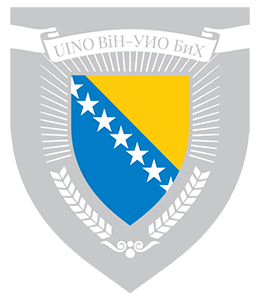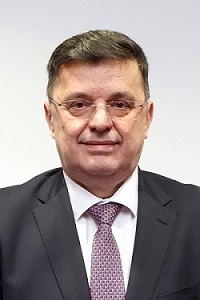Establishment
On December 29, 2003 the Parliament of Bosnia and Herzegovina adopted the Law on Indirect Taxation and thus ensured the legal basis for establishing the Indirect Taxation Authority, the biggest state level institution.
In the course of 2004 the former customs administrations of the entities and District Brčko were merged. Parallel with the process of reorganization of the customs service, a Tax Sector was established for the first time at state level. It was tasked with developing and maintaining a unique value added tax system.
The year of 2004 was marked by customs administrations merger and delegation of power. The Indirect Taxation Authority has been functioning as an integral entity at the entire territory of Bosnia and Herzegovina as of January 1, 2005. Just a year and half later the ITA began with registration of VAT taxpayers which was the final phase of preparations for VAT introduction. The ITA has, as soon as possible, successfully introduced a new taxation system. The international institutions considered that one of key steps towards establishment of single economic space, reduction of the grey economy, foreign investments encouragement and reduction of foreign trade deficit.
Management and Organization
The Indirect Taxation Authority is an autonomous administrative organization responsible for its activities, through its Governing Board, to the Council of Ministers of Bosnia and Herzegovina.The Governing Board of Indirect Taxation Authority consists of 6 members of whom there are three ministers of finance who are the ex officio members.
The Headquarters of Indirect Taxation Authority is in Banja Luka. The field activities are run by four Regional Centres in: Sarajevo, Banja Luka, Mostar and Tuzla, 37 Customs Offices and 61 Customs Posts, out of which 41 are passenger Border Crossings, 4 airports, 8 railway Border Crossings, 3 overseas Post Offices and 5 Free Zones. The organizational structure of the Indirect Taxation Authority is the following: five sectors and four departments comprising the Office of the Director
Legal basis
Functioning of Indirect Taxation Authority is based on the following key laws:
- Law on Indirect Taxation System of Bosnia and Herzegovina
- Law on Indirect Taxation Authority
- Law on Indirect Taxation Procedure
- Law on Forced Collection Procedure
- Law on Customs Policy of Bosnia and Herzegovina
- Law on Customs Offences
- Law on Customs Tariff of Bosnia and Herzegovina
- Law on Value Added Tax
- Law on Excise Duties
- Law on Payments on the Single Account and Revenue Allocation
Our mission
The Indirect Taxation Authority is a single authority in Bosnia and Herzegovina responsible for enforcement of legal provisions and policy on indirect taxation, as well as for the collection and allocation of indirect taxes revenue.
The Indirect Taxation Authority is responsible for the collection of all indirect taxes in Bosnia and Herzegovina: value added tax, customs duties, excise duties and road taxes. Only 18 months after its official establishment, the Indirect Taxation Authority entered the final stage of preparations for the introduction of value added tax and commenced with the registration of VAT taxpayers.
According to the data provided by entities’ tax administrations 20,000 VAT taxpayers were anticipated, however the Indirect Taxation Authority has currently registered and is maintaining a VAT taxpayer population of over 55,000. Since its establishment, the Indirect Taxation Authority has posted continuous revenue increases. Our priorities are to achieve the high goals set by the process towards future EU integration, such as:
- to accelerate the flow of goods and people while simultaneously intensifying the controls,
- to enhance the level of security of citizens, to develop cooperation with other national and international institutions aimed at harmonizing the procedures and aligning the legislation with the EU standards,
- better exchange of information between other institutions and the successful fight against illicit trafficking and all other types of customs or tax frauds.

